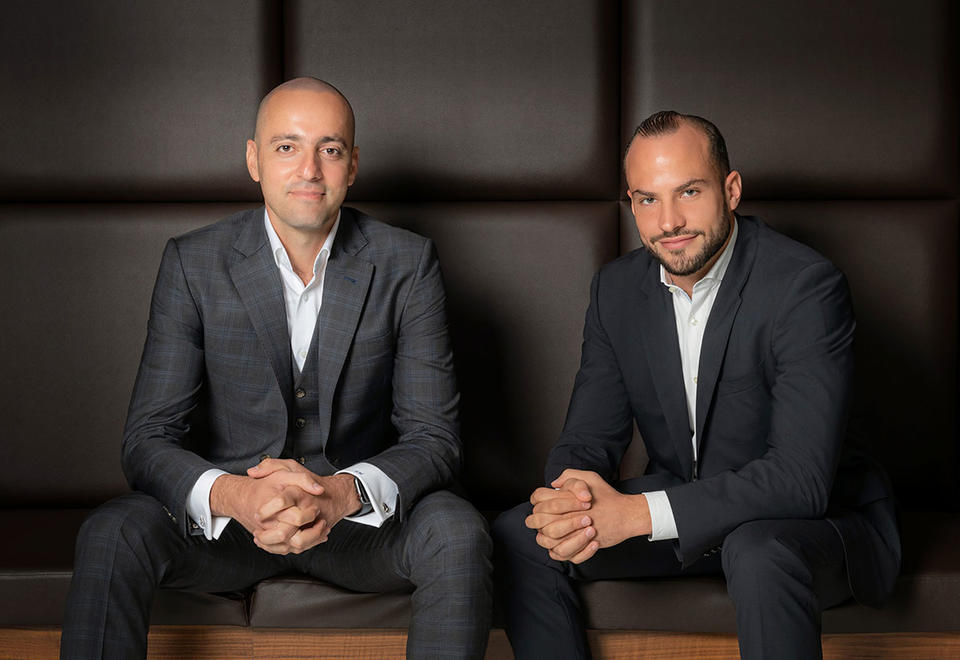Room for growth in the GCC: Opportunities and challenges in the hotel sector
- Uncategorized
-
Feb 26
- Share post

Ramsay Rankoussi, Vice President, Business Development – Middle East, North Africa & Turkey and Elie Milky, Vice President, Business Development – Middle East, Greece & Cyprus, outline the opportunities and challenges in the hotel sector in the GCC

(From left) Amid global challenges, Elie Milky and Ramsay Rankoussi believes in the exciting opportunities the region has to offer.
What is the hotel development market in the UAE and wider GCC like at present?
The constant desire for improvement, as well as efforts to further facilitate business in the region, together play as a catalyst for foreign investments. This, in turn, stimulates local economies, puts innovation at the forefront and consequently leads to consistent success. We foresee further growth and potential to diversify our hotel portfolio across all sectors and all brands: from midscale to luxury; from Park Inn by Radisson to Radisson, Radisson RED and Radisson BLU, and also Radisson Collection.
What do you see as the biggest opportunities and challenges for the sector?
The region offers many exciting opportunities punctuated by various challenges. Chief amongst such challenges is the geopolitical uncertainty resulting in political tensions as well as security risks. The fact that the GCC remains one of the safest places to visit and to do business in has kept this region attractive to consumers and investors alike. Development activity has continued primarily in the UAE and Saudi Arabia as a result of positive investor sentiment.
Oversupply is another challenge that parts of the region recently started facing as a result of the development boom. This is the nature of any developing market on the road to becoming a mature market. Riyadh and Dubai are solid examples.
The recent outbreak of the coronavirus epidemic has put further pressure on visitation as travellers worldwide, not in from Asia, are scaling back on unnecessary travel until the situation is contained.
What do you see as the outlook for 2020?
The UAE is on track to becoming a mature market. The five-year uninterrupted oversupply situation in Dubai, for instance, is not expected to continue as demand is expected to outpace supply once again starting from 2022, with a slight pick-up in 2020 as a result of the build-up to Expo 2020.
In Saudi Arabia, Riyadh is seeing a strong recovery as business activity resumes on the back of Vision 2030, while Jeddah and the holy cities are expected to also benefit from the boom in inbound tourism as the kingdom opens its gates to the world. Feeder markets such as China, Russia, Africa, India and others will continue to keep hotel operators busy as the industry continues to find ways to diversify its offering as well as its target markets.
Do you think there is still a big pipeline for more luxury hotels in Dubai?
More luxury hotels are needed but in key locations, with diverse offerings and offering different product types. This is a long way from the classical luxury and the large number of luxury hotels that have flooded the market in the past. Also, the industry, which has historically been fuelled by middle-aged business and leisure tourists from advanced economies, is now transforming itself to cater to visitors of all ages from across the globe. This change brings with itself numerous opportunities, but it also hides challenges. One of these changes is tomorrow’s biggest travellers, a generation of millennials – currently 2.2 billion globally, who have started choosing affordable lifestyle hotels over staying at high-end resorts. With five distinctive hotel brands including Radisson Collection, Radisson Blu, Radisson, Radisson RED, and Park Inn by Radisson, the profile of our traveller will also vary from location to location and from brand to brand.
Are hotel owners getting more competitive in their demands from operators?
Absolutely and rightly so! We foresee the biggest opportunities to be conversions and takeovers. Historically, our group has been known for repositioning existing hotels under one of our brands and we believe we can continue to replicate the same success as existing hotel owners look at ways of improving their returns.
What sectors, geography do you see the biggest demand for hotels in the GCC?
Definitely the Kingdom of Saudi Arabia. The new visa system is only one step towards the target which has been set to exceed 100 million annual visits by 2030. Pilgrimage would remain the essential priority with the holy cities but leisure destinations are being promoted to showcase some of the hidden attractions. Riyadh has been successful in diversifying its offering from mainly business travel to the launches of multiple festivals, entertainment and leisure activities.
Do you think there will be more consolidation within the industry going forward?
Indeed, but possibly to a lesser extent as most of the large-scale activity has already taken place. As the market becomes more saturated and competitive, the industry is asked to look at ways of improving performance and to continue to be commercially creative, and in recent years, consolidation was part of the answer.
Source: arabianbusiness.com

